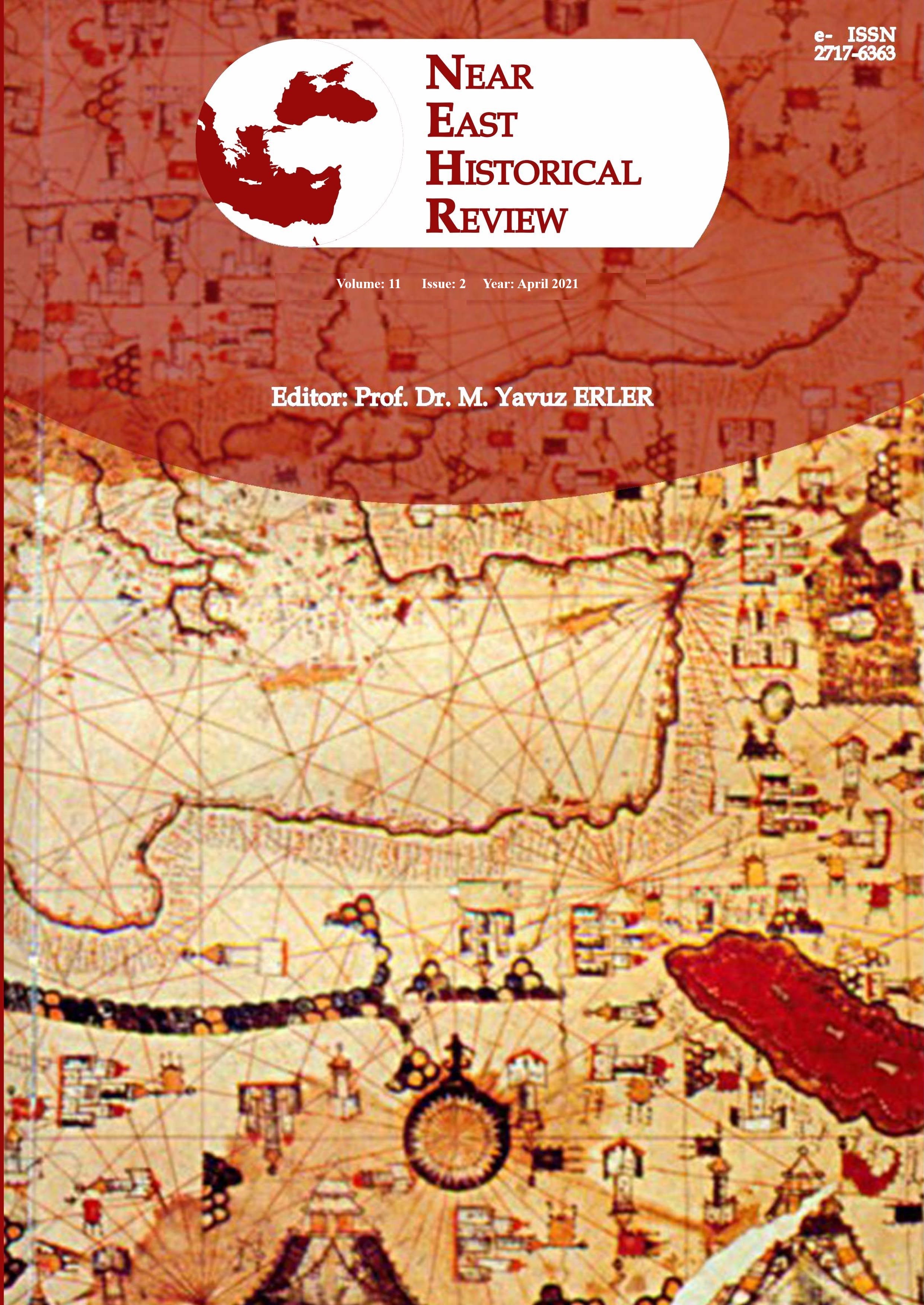Author :
Abstract
Süleyman Penâh Efendi’nin oğlu olan Osman Efendi, aslen Moralı’dır. Maliyeden yetişerek çeşitli devlet görevlerinde bulunmuş, 1813-1818 yılları arasında İzmit kereste nazırı olarak görev yapmıştır. Memuriyeti süresince Tersâne-i Âmire’nin kereste ve kirpas ihtiyaçlarının temin edilmesinde ve İstanbul’a gönderilmesinde gayret göstermiş, İzmit Tersanesi’nin yeniden inşa edilmesine nezaret etmiştir. Ayrıca Sakarya Nehri’nin Sapanca Gölü ile ve bu gölün İzmit Körfezi’yle birleştirilmesi amacıyla hazırlanan projede görev almış, bölgenin keşfine memur edilen heyetle birlikte çalışmıştır. Bölgesindeki gelişmeleri yakından takip eden Osman Efendi, eşkıya ve eşkıyalık olayları hakkında merkezi bilgilendirmiş; yerel ayanların işledikleri suçların affedilmesi gibi bazı girişimlerde de bulunmuştur. Memuriyeti süresince İzmit’te ikamet eden Osman Efendi, hastalığı dolayısıyla zaman zaman İstanbul’a gidip gelmiştir. Son memuriyeti Saruhan nazırlığı olan Osman Efendi, aynı zamanda bir hayırsever olarak vakıf kurmuş, İzmit’teki Pertev Paşa Medresesi’ni bu vakıf aracılığıyla desteklemiştir.
Bu çalışmada çok yönlü bir kişiliğe sahip olan Moralı Osman Efendi’nin kısa biyografisine işaret edilerek İzmit kereste nazırlığı dönemi, kurduğu vakfı ve memuriyetleri boyunca edindiği servetin bir yansıması olan muhallefâtı, arşiv belgeleri ışığında değerlendirilmiştir. Böylece Osman Efendi’nin şahsında, taşraya tayin edilen bir devlet görevlisinin yetkileri, şehre ve bölgeye katkıları, merkezle iletişimi ve yerel idarecilerle ilişkileri tespit edilmeye çalışılmıştır.
Keywords
Abstract
Osman Effendi, son of Suleiman Penâh Effendi, was originally from Morea. He was educated in finance and served in several government offices, including his service as a timber custodian in Izmit between 1813-1818. Osman Effendi tried hard to meet the Imperial Arsenal’s (Tersâne-i Âmire) need for timber and linen cloth and to transfer them to Istanbul, and supervised the re-construction of the Izmit shipyard. He also took part in the project to connect the Sakarya river with the Sapanca lake, which was to be connected further to the Gulf of Izmit. Moreover, he worked with the delegation which had been assigned with the task of exploring this region. Osman Effendi informed the central administration about the events of banditry and even the bandits themselves as he closely followed the developments in his district. He also made certain initiatives such as pardoning the crimes of local notables. Osman Effendi resided in Izmit during his tenure and occasionally visited Istanbul due to his illness. His last office was in the Saruhan district. Being a philanthropist, he also established a religious foundation (waqf), which was intended to support the Pertev Pasha Madrasa in Izmit.
In this study, a brief biography of Moralı Osman Effendi as a versatile personality has been introduced and his custodianship of the timber in Izmit, the religious foundation he set up and the estate (mukhallafat) he left behind upon his death, which was a sign of the wealth he acquired during his services, have been analysed in the light of archival documents. Thus, the current research undertakes the task of illustrating the limits of the authorization of a government official in the countryside as represented by Osman Effendi as well as his contribution to the town and region he was assigned to, his communication with the central administration and his relations with local rulers.
Keywords
- Mehmed Süreyya, Sicill-i Osmanî, 4, Yayına Hazırlayan: Nuri Akbayar, Eski Yazıdan Aktaran; Seyit Ali Kahraman, İstanbul 1996.
- Akşener, Meral, İzmit Şer’iyye Sicili (4 Muharrem 1220-25 Şevval 1230) (4 Nisan 1805-30 Kasım 1814), Marmara Üniversitesi Türkiyat Araştırmaları Enstitüsü, Yayımlanmamış Doktora Tezi, İstanbul 1992.
- Bostan, İdris, Osmanlı Bahriye Teşkilâtı: XVII. Yüzyılda Tersâne-i Âmire, Ankara 1992.
- Bulmuş, Birsen, “Osmanlı İmparatorluğu’nda Veba Kavramları Üzerine: Mistisizimden Sosyal Reforma”, Motif Akademi Halkbilimi Dergisi, C.3, S.6, Yıl 2010, s.45-51.
- Çakır, Baki, “Kese”, Türkiye Diyanet Vakfı İslam Ansiklopedisi, C. Ek-2, Ankara 2019, s.42-43.
- Çetin, Atilla, “Adapazarı Âyanı Kara Osman Ağa Vakfı ve Vakfiyesi”, Vakıflar Dergisi, S.30, Ankara 2007, s.155-183.
- Çetin, Atilla, “Kocaeli ve Hüdavendigar Sancaklarında Eşkiyalık Olayları (18. ve 19. Yüzyıllar)”, Osmanlı’dan Günümüze Eşkıyalık ve Terör, Ed. Osman Köse, Samsun 2017, s.135-157.
- Derin, Fahri Ç., Yayla İmâmı Risâlesi, İstanbul Üniversitesi Edebiyat Fakültesi Tarih Enstitüsü Dergisi, Sayı 3, Ekim 1972, İstanbul 1973, s.213-272.
- Erkal, Mehmet, “Arşın”, Türkiye Diyanet Vakfı İslam Ansiklopedisi, C.3, İstanbul 1991, s.411-
- Kalıpçı, Mahmud Esad, “Müsadere Kurumunda Islaha Dair Bir Teklif: III. Selim Dönemine Ait Bir Vesika”, https://dergipark.org.tr/tr/download/article-file/272849 s.253-284 (E.T.15.03.2020).
- Nagata, Yuzo, Tarihte Âyânlar Karaosmanoğulları Üzerinde Bir İnceleme, Ankara 1997.
- Narin, Resül, “Osmanlı’dan Cumhuriyet’e Ağaç Denizi Kocaeli”, Uluslararası Çoban Mustafa Paşa ve Kocaeli Tarihi-Kültürü Sempozyumu-IV, Kocaeli 2017, s.971-997.
- Narin, Resül, “Osmanlı Devleti Zamanında Kocaeli Ormanları”, Belleten, C.LXXV, Sayı 274, Aralık 2011, s.769-782.
- Özdemir, Kerim, İzmit Kazası Vakıfları ve Vakıf Eserleri: Tespit ve Değerlendirme (1750-1850), Afyon Kocatepe Üniversitesi Sosyal Bilimler Enstitüsü, Yayımlanmamış Yüksek Lisans Tezi, Afyonkarahisar 2018.
- Özkaya, Yücel, “Anadoludaki Büyük Hanedanlıklar”, Belleten, C.LVI, Sayı 217, Aralık 1992, s.809-845.





